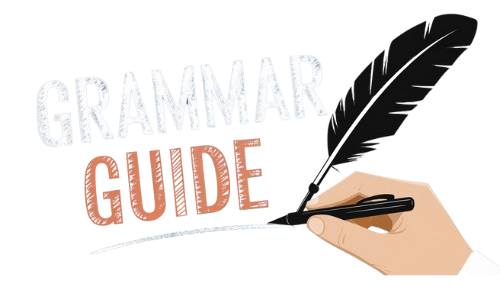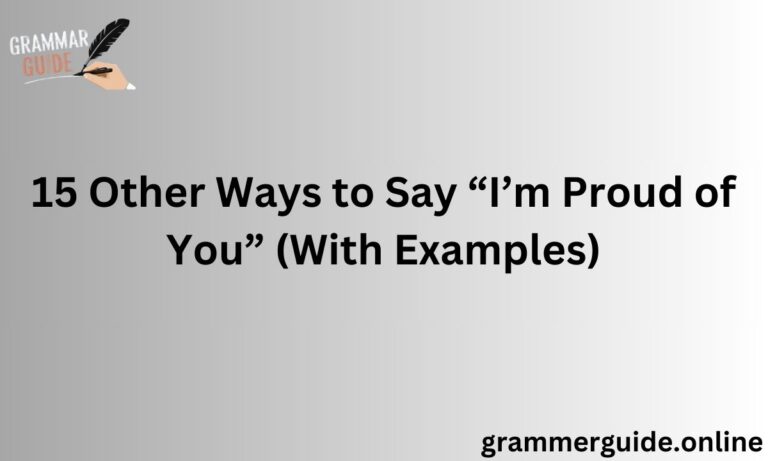Expressing pride in someone is a powerful way to boost their confidence and motivation. However, using the same phrase repeatedly can lose its impact over time.
Finding creative ways to convey admiration makes your praise more meaningful and personal. This guide explores 15 unique ways to say “I’m proud of you” with examples and insights on when to use them.
Why It Matters to Say “I’m Proud of You” Differently
Expressing pride in someone can boost their confidence and motivation. However, using the same phrase repeatedly may lessen its impact. Finding unique and tailored ways to show admiration makes praise more meaningful.
Emotional Impact of Words
Words carry power. A well-timed expression of pride can uplift someone’s spirit, but generic praise can feel impersonal. By using different phrases, you create deeper emotional connections and make your recognition more genuine.
The Importance of Tailoring Praise
Personalized praise is more effective. Some people appreciate verbal encouragement, while others value recognition of effort. The way you express pride should match the context, culture, and relationship to be truly impactful.
15 Other Ways to Say “I’m Proud of You”
1. You Should Be Really Proud of Yourself
When to Use: To encourage someone to own their success.
Example: “You’ve worked so hard on this. You should be really proud of yourself!”
Why It Works: It shifts focus to their accomplishments, making the praise feel empowering.
2. I’m in Awe of Your Accomplishments
When to Use: When someone achieves something extraordinary.
Example: “Your dedication to this project is inspiring. I’m in awe of your accomplishments!”
Why It Works: It conveys admiration for their hard work and results.
3. You’ve Done an Incredible Job
When to Use: To recognize hard work in personal or professional settings.
Example: “The way you managed this task was outstanding. You’ve done an incredible job!”
Why It Works: It acknowledges both effort and results, making the praise well-rounded.
4. Your Hard Work Has Paid Off
When to Use: When perseverance leads to success.
Example: “All your dedication and effort have paid off beautifully!”
Why It Works: It reinforces the value of consistency and effort.
5. I Always Believed You Could Do It
When to Use: When someone overcomes self-doubt.
Example: “You had doubts, but I always believed you could do it!”
Why It Works: It reassures them that their abilities were never in question.
6. You Make Me So Happy to Know You
When to Use: To express personal connection and pride.
Example: “Seeing your growth makes me so happy to know you!”
Why It Works: It ties accomplishments to emotional relationships.
7. Your Growth Is Truly Inspiring
When to Use: When acknowledging personal or professional development.
Example: “Your progress over the past year has been amazing. Your growth is truly inspiring!”
Why It Works: It highlights progress, not just achievements.
8. I’m Overjoyed by What You’ve Achieved
When to Use: When celebrating big milestones.
Example: “I’m absolutely overjoyed by what you’ve achieved. Your dedication is unmatched!”
Why It Works: It conveys strong emotion and genuine excitement.
9. You’re Setting a Fantastic Example for Others
When to Use: When someone serves as a role model.
Example: “Your leadership on this project is inspiring. You’re setting a fantastic example for others!”
Why It Works: It shows how their actions influence others positively.
10. Your Dedication Is Remarkable
When to Use: When recognizing consistent effort.
Example: “Your dedication to this goal is remarkable. It truly shows in your work!”
Why It Works: It praises their commitment and perseverance.
11. You’ve Made Me So Proud to Be Your [Friend, Parent, Teacher, etc.]
When to Use: To add a personal touch to your praise.
Example: “As your mentor, I couldn’t be prouder of you!”
Why It Works: It strengthens relationships and expresses deep pride.
12. Seeing Your Success Is Truly Rewarding
When to Use: When you’ve played a role in their journey.
Example: “Watching you grow has been rewarding. I’m beyond proud of you!”
Why It Works: It highlights your emotional investment in their success.
13. You’ve Mastered This!
When to Use: When someone reaches a high level of skill.
Example: “Your work is flawless. You’ve mastered this!”
Why It Works: It acknowledges expertise and effort.
14. You Are a Force to Be Reckoned With
When to Use: When someone overcomes major obstacles.
Example: “After everything you’ve faced, you’re truly a force to be reckoned with!”
Why It Works: It emphasizes strength and resilience.
15. I’m So Impressed by Your Perseverance and Grit
When to Use: When someone has pushed through challenges.
Example: “I’m so impressed by your perseverance and grit!”
Why It Works: It highlights determination and hard work.
Why Specific Praise Matters
Giving specific praise enhances emotional impact and motivation by highlighting exactly what someone did well. It strengthens relationships by showing that you’ve been paying attention and genuinely appreciate their efforts.
Case Study: How Tailored Praise Transformed a Team’s Performance
A team leader noticed that saying “I’m proud of you” wasn’t motivating her employees. She began using specific praise, like “Your data analysis was precise and insightful.” Over time, team performance improved because employees felt truly appreciated.
Tips for Expressing Pride in Different Settings
Tailor your words to the situation—use emotional warmth in personal relationships and professionalism in the workplace. When praising children, focus on their effort and growth to encourage perseverance.
Personal Relationships
Use emotional language to make your praise heartfelt. Phrases like “You make me so happy” strengthen bonds.
Professional Settings
Keep it formal yet personal. Recognizing hard work with phrases like “Your leadership is inspiring” keeps it professional.
With Children
Focus on effort over outcomes. Saying “You worked really hard on this” helps build resilience and motivation.
Frequently Asked Questions
Why is it important to say “I’m Proud of You” differently?
Using varied expressions makes praise more personal and impactful.
What are some alternatives to “I’m Proud of You”?
Try “You should be really proud of yourself” or “Your hard work has paid off”.
How can I express pride in a professional setting?
Use formal but warm phrases like “Your dedication is truly inspiring”.
How can I encourage children with different phrases?
Highlight effort with phrases like “I love how hard you worked on this”.
Can these phrases help strengthen relationships?
Yes! Personalized praise builds stronger connections and trust.
Conclusion
Expressing pride goes beyond saying “I’m proud of you”. By using specific phrases, you make your praise more personal and impactful. Whether in personal, professional, or educational settings, choosing the right words strengthens relationships and boosts motivation. Start using these powerful alternatives today and see the difference in how people respond!
Whether in personal or professional settings, thoughtful words can strengthen relationships and inspire growth. By varying your expressions, you show genuine appreciation and make your praise unforgettable.

Robert is a talented content writer and digital marketer with expertise in SEO, social media management, and online marketing.







